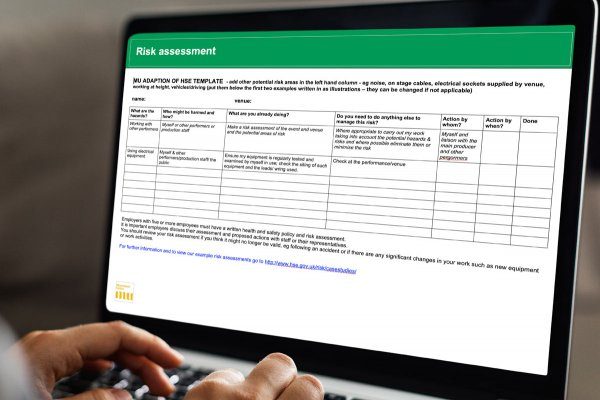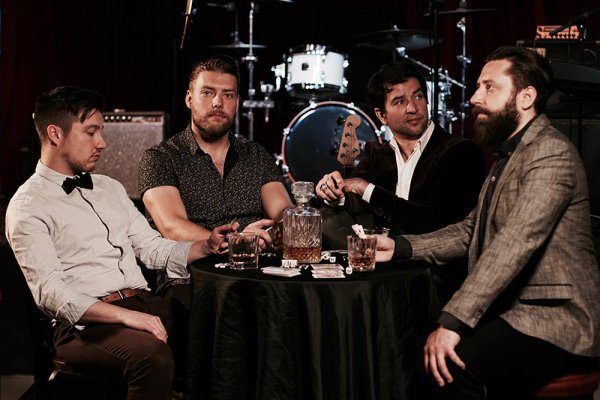
How to Make Money From Music
Learn how to monetise your music career with these money-making strategies.
- musicians blog
- Updated: 18th December 2024

Do you love playing, writing, and producing music but struggle to make money from it?
Make sure you've explored each of our 10 money-making methods, and your ever-growing guitar collection and years upon years of drum lessons will soon be paying for themselves.
Although the music industry today is entirely different to how it was even as recently as the 90s, many of the old ways of making money from music are still alive and well.
A few new ways have sprung up in the internet age, some of which have the potential to be even more lucrative than traditional means.
Let's get stuck in!

Play in a function band
If you want performance to be your bread and butter, there's a lot to be said for starting a high-quality function band. Also known as a party band, cover band or wedding band, a function band is generally a step up from a pub covers band in terms of professionalism and musicianship - and the higher rates the band can charge reflect this.
The best function bands follow two simple rules: play to your strengths, and play to your audience. Following these two rules to a tee will help you develop a set list that simultaneously makes you sound like an expert-level band and guarantees that you'll fill the dance floor.
Typically, if your function band plays at an event such as a wedding, you'll perform 2 sets lasting about 45-60 minutes each, with a short break in the middle. You'll most likely be required to bring and set up all your equipment and take it down again - but you'll be suitably paid for your trouble.
If you're in the UK, you can apply to join Bands for Hire here, or for our readers in the US and Canada, you could try a booking platform such as GigSalad.

Sell your merchandise
The benefits of selling merchandise featuring your band logo to your fans are twofold.
One: the revenue these sales bring in serves as an excellent supplement to your primary income, as the products are much less expensive to produce in bulk than the average retail price.
Two: free advertising! Every time someone sees a fan of your band sporting a t-shirt with your name on it, that's a potential new fan.
Some of the most popular types of band merch include:
- T-shirts
- Baseball caps
- Mugs
- Badges
- Patches
Thinking of different types of merchandise can be an enjoyable band activity. Nowadays, slapping your logo on even the more outlandish products is easier than ever thanks to creators offering their services on independent online marketplaces such as Etsy - have a search for merch ideas on their website.
Your fans might also be interested in the following:
- Cushions
- Tea towels
- Socks
- Water bottles
- Tote bags
You can sell your merch from your band website or via social media (or both!) relatively easily, without even having to leave the house. However, one of the best ways to sell your wares is from a merch stand, face-to-face with your fans straight after you've played a blinder of a show. It's also a great way to chat with your fans directly - which will, in most cases, convince them to come and see you again!

Claim your royalties
As a songwriter, once your song has been published, you own at least some of the copyright to that song. This means that you are entitled to a payout (known as 'royalties') whenever your music is used commercially.
There are 2 main types of royalties you can earn from a song you wrote:
- Performance royalties for whenever your song is synced for film or television, broadcast on radio, covered and released by another recording artist, or played in concert
- Mechanical royalties for whenever your song is streamed on a platform such as Spotify, reproduced on a CD, cassette or vinyl, or downloaded.
Understanding music publishing is very useful, especially when you're trying to earn money as an independent artist.
Some artists self-publish, meaning they take 100% of the royalties, although they have to promote their music and collect and manage them.
Some artists make a deal with music publishers, who take a percentage of the earnings (often 50%). In exchange for this, they offer the artist opportunities and connections and help to collect the royalties.

Upload your song to streaming platforms
Streaming is undeniably the most popular way for viewers and listeners to access media, so you need to get yourself a slice of the action!
It takes tens, even hundreds of thousands of listens, before you start making any real money from streaming, but an intelligent way to increase your chances of earning more is to sign up for as many streaming services as possible. Plus, the number of listens will increase as you build your fanbase.
We may have the preferred streaming services that we like more than others, and some streaming services pay their artists more per listen than others, but they're all still worth considering. Make sure you research how much each streaming platform will charge you to upload your song and find out whether they charge on a song-by-song basis or offer bundle deals for uploading EPs or albums.
The most popular streaming services that you should sign up to are currently:

Sell your music on vinyl, cassette and CD
While digital distribution and streaming services continue to dominate the media landscape, selling physical copies of your music is still worth investing in.
The vinyl and cassette formats have made something of a comeback in recent years. CDs are much cheaper to reproduce, but fewer and fewer listeners even have CD players in their homes or cars.
Many listeners enjoy having something physical to hold and listen to, which you don't get when you stream all your music. An excellent place to sell your personalised CDs, cassettes and vinyl records to fans is from your merch table at your gigs - it's a great way for them to relive the experience they had when they watched you play!

Work as a sound engineer or producer
There's money to be made from the other side of the mixing desk - or the other side of the recording booth window.
It's easier and more affordable than ever to set up a home studio for yourself, so start researching and pricing up digital audio workstations (DAWs), condenser and dynamic microphones, audio interfaces, and sound-proofing materials.
Once you have set up your home studio and have chosen which DAW you want to work with, it's time to practice! Start recording your demos, and see if you can get nearer to the polished sound of a professional recording.
Make sure you know your DAW inside out, and familiarise yourself with any common recording problems (like unwanted hiss) so you know how to solve them - then, you will be ready to start offering your services.
TIPBy having your own home studio, you'll save money you would've paid another studio to record you, and it will also earn you money when you record other artists and bands.
Once you're familiar with how to set the levels of each band member from your mix desk, you could also branch out into a live setting.
While some bands like to be in charge of their own sound at their gigs, most will appreciate a safe pair of hands (and a keen pair of ears). Make some enquiries at local music venues about whether they could use your live sound engineering skills, and you can negotiate a regular gig offstage.

Set up a crowdfunding campaign
If you're struggling to raise the funds you need to further your musical career, think about setting up an online crowdfunding campaign.
Crowdfunding is a way of asking your fans to donate money to you to support a particular project. Even a small donation from each member of a growing fanbase will soon amount to something more significant.
Bands and artists increasingly use crowdfunding to help them organise tours and record albums. When you're just starting out, you could also use crowdfunding to ask your fanbase to help you afford musical equipment or commission album artwork.
Some crowdfunding platforms are specifically geared towards the arts, which makes them an excellent option for musicians looking for a helping hand. Here are a few of the most popular:
The UK's Leading Live Music Agency
Join our highly professional roster and take your live music career to the next level.
Sign up with a subscription platform
This is similar to crowdfunding in that you ask your fans to help support you financially, but there are a few key differences.
Firstly, whereas you use crowdfunding platforms to ask your fans for a one-off payment, you use a subscription platform to ask your fans for a monthly fee. Again, these payments can be as small as £1, but over time and as your fan base grows, those pounds start to look after themselves.
Patreon is a popular subscription platform among YouTubers because if they receive enough monetary support from their fans, they can dedicate more time to creating higher-quality content. The same goes for musicians - although you might not be able to 'quit your day job' thanks to your Patrons alone!
Secondly, because fans who pay a subscription to Patreon (known as 'Patrons') are investing in the project over a while, creators and artists send them exclusive content in return that isn't available elsewhere. This could be unreleased songs, artwork, or backstage photos and in-studio footage of your band.
Find out more about Patreon on their website.

Endorse a brand
You may have seen adverts on Facebook of artists discussing a guitar brand like Fender or Gibson or watched a YouTuber dedicate part of their video to promote a sponsor like Skillshare or NordVPN. You may also have seen Johnny Rotten's Country Life butter adverts!
This is the result of arrangements like endorsement deals and brand partnerships. Brands, just like bands, are always looking for more ways to promote themselves and for more customers to promote themselves to, so if you're building a following online, brands will start to see that as an opportunity to reach another audience.
As part of these deals, there's usually an agreement that you, as the artist, will help promote and will only use that brand's products. So if you did enter into a brand partnership with Fender, you'd better hang up your Les Paul and strap on your Stratocaster!
TIPDo take the time to consider whether the business is a good match for your band. Remember: the most important thing about your band to your fans, as well as to advertisers, is your authenticity, so don't lose it by selling out!
When you're just starting out as a musician, you will still need to build up enough of a fan base to attract the interest of multi-million corporations. You need to prove that you can influence thousands and thousands of people before you're offered a Marshall endorsement deal like Angus Young from AC/DC or are chosen to become a Yamaha Artist like Alicia Keys.
That being said, as you build your online presence, get in touch with smaller, local businesses to see if they'd be interested in sending you some free stuff that you could mention or feature in your next YouTube video or at your next gig.

Give music lessons
There's a saying that 'those who can't do, teach'. We have an expression of our own, that 'those who do can teach too'!
Whether you want to give piano lessons, beatboxing workshops, or songwriting classes, if you've got this far, you've got some skills worth sharing.
You can give in-person lessons and tutor your students a couple of evenings each week or at weekends. A few good ways to get your name out there as a music tutor are to join and post in local Facebook groups, get in touch with local schools, and ask local music shops and live music venues to put your flyers up.
Alternatively, you can give virtual lessons. If you have enough content, you could create a series of tutorials or vlogs and upload these to YouTube. Make sure you don't post your best content for free - this could be reserved for your Patrons!






